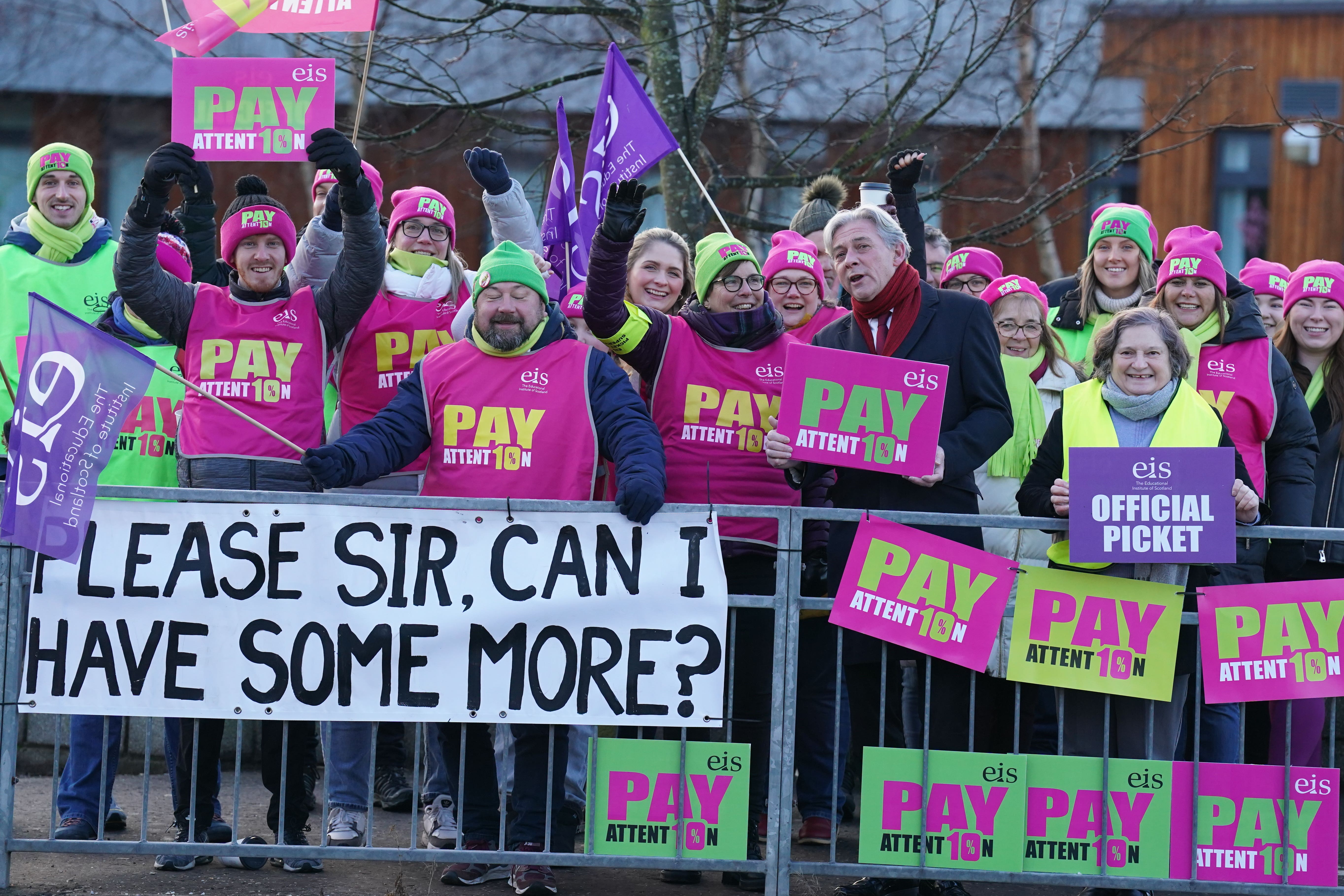Families to face disruption as Wednesday’s teachers’ strike looms
Councils from across the UK have started to give an indication of the scale of the school closures.

Schools and families are facing disruption as parents may need to take unpaid leave to cope with childcare during Wednesday’s teachers’ strike.
Local authorities from across the UK have started to outline what impact the walkout could have on schools, with many only able to remain partially open.
Strikes by teacher members of the NEU in England and Wales, which threaten disruption to 23,000 schools, are the first of seven days of walkouts by the union in February and March amid a pay dispute.
Downing Street said it is “disappointing” school leaders do not know how many teachers will be available for work until the strike day itself.
Many councils are posting lists of closures and part closures on their websites to keep parents informed, but others suggested schools would be in touch with parents directly if their school is affected.
Despite the potential impact of the strikes, Mumsnet founder and CEO, Justine Roberts said 62% of the site’s users back the walkouts.
She said: “We know that the teachers’ strikes will be disruptive for many families, with parents forced to work from home and take annual or unpaid leave to look after younger children.
“There is also concern about how the strikes will affect children’s education, particularly in exam years.
“However, there is a significant amount of sympathy for teachers amongst Mumsnet users, with 62% telling us they back the strikes and just 27% opposing them.”
Although many schools have not yet declared whether they will be able to remain open on Wednesday, some councils have provided an early indication of how many could be affected.
Based on returns from around 130 of around 160 schools in Liverpool, 38% are due to be closed, with 54% only partially open, the city council said.
Leicester City Council indicated 15 of its schools would be fully closed, and 61 partially closed, with nearby Nottingham City Council saying 25 of its local authority-run schools would remain partially and five would fully close.
Middlesbrough council said two of its schools would be fully closed, 21 would be partially closed and 14 fully open, while Wigan council said their region would see eight full closures, 48 partial closures and 30 open as normal.
Norfolk County Council said they were being updated continuously by schools in the region, but they had been informed of 121 partial closures and 29 full closures.
Bristol City Council urged parents with a vulnerable child or who are critical workers in the region to contact their school – adding: “Unless school leaders inform you that the school is closed or cannot provide a place, then you still have a legal duty to send your children to school unless they are unwell.”
Some 300,000 teachers and support staff were asked to vote in the NEU ballot – and more than 127,000 teacher members in England and Wales backed strike action.
In addition, new sign-ups to the NEU have nearly doubled in a week, from 22,000 on Tuesday last week to 40,000.
Some Academy trusts said it was “all hands to the pump” for staff who were not striking, with exam students taking priority for those schools who were having to partially close.
Benedick Ashmore-Short, CEO of The Park Academies Trust – which runs six schools in the South West, said: “Teachers have the right to strike and as school leaders we absolutely respect that, but we must also balance that valid right with the needs of pupils who have had their education disrupted by the pandemic over the last three years.
“So we want to keep our schools open as much as possible and only ask pupils to stay at home as a last resort.
“Our contingency plans are based around a core of staff who are not striking. It’s a case of all hands to the pump and as CEO I will be available to teach classes, if necessary.”
Bookmark popover
Removed from bookmarks